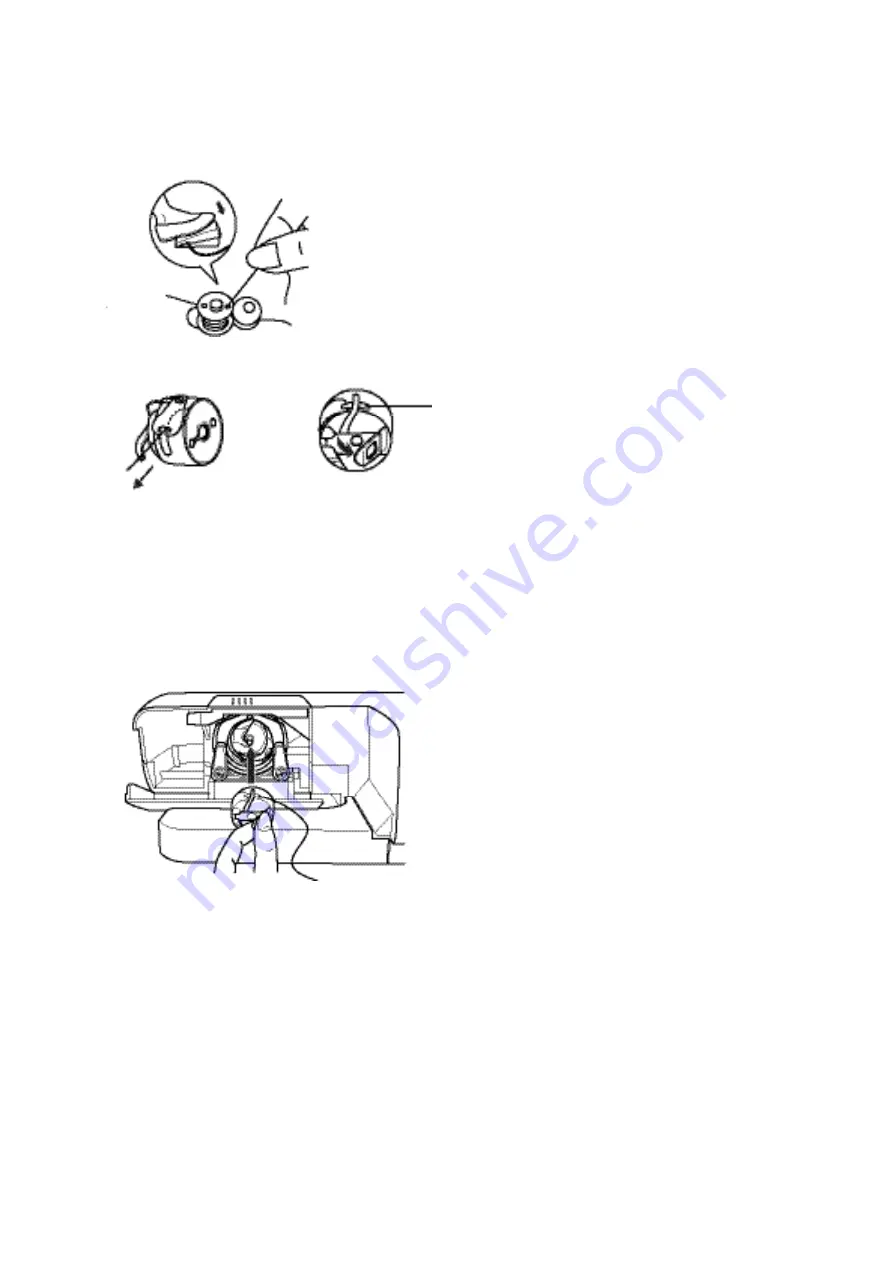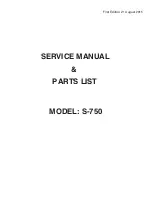
36
7. Slowly press down on the foot pedal
until the bobbin is sufficiently full.
8. Press the bobbin winder to the left
and remove the bobbin.
9. Cut the thread.
Inserting the bottom thread bobbin
1. Leave about 5 cm of thread hanging
out of the bobbin.
2. Place the bobbin in its case with the
thread wound clockwise.
3. Insert the end of the thread into the
thread slot in the bobbin case.
4. Pull the thread through the thread
slot under the tension spring. Pull
out about 10 cm of thread.
5. Pull the thread to the front.
6. Open and hold on to the latch of the
bobbin case.
7. Place the bobbin case onto the
middle spindle. The tension spring of
the bobbin case should face upwards
in the groove of the shuttle case.
8. Close the shuttle case cover.
9. Push the detachable sewing table
back into position.
















































